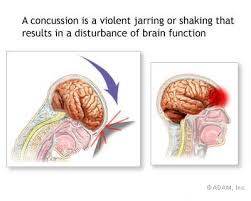
We are staying ahead of the game to you by bringing you the latest guidelines on sports related concussions and head trauma, and how you can help keep your children safe when playing high impact sports.
What You Need to Know about Concussions and Head Trauma
Connecticut has recently passed laws requiring coaches, trainers, phys-ed teachers and anyone working with student athletes or professional athletes to under-go training on how to diagnose, treat and educate their athletes on the dangers of concussions and head injuries caused by sever blows to the heads.
Concussion symptoms, or what to look for if your child receives a head injury
The physician should take a history of the event and find out the following:
- has there been any loss of consciousness
- what was the location of the head injury
- has there been nausea
- has there been vomiting
- has there been retrograde amnesia
- or, anterograde amnesia
The Concussion exam may also include testing to see if there is loss of coordination, a neurological exam, observing to see if there is or has been any confusion, lethargy, fatigue or loss of sleep, or any difficulty n answering simple questions.
The patient should be watched for :
- confusion
- excessive sleep
- increased lethargy
The majority of head blows do not result in concussion and if after an exam, the results are normal the typical protocol is to take a few days off and them return to their activity.
If your child or loved one has received head a blow to the head and you are unsure of whether this is a concussion or not, please, feel free to come in and let one of our providers conduct an exam. Feel free to either save time by signing in online, or walk in, no appointment needed


